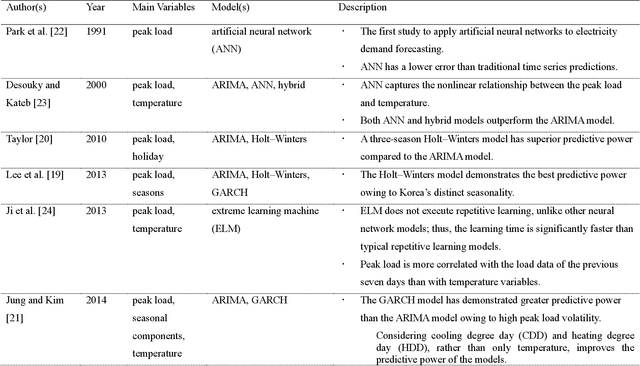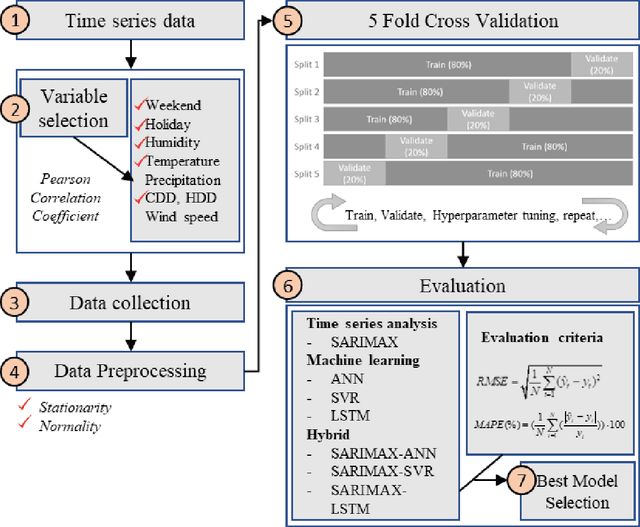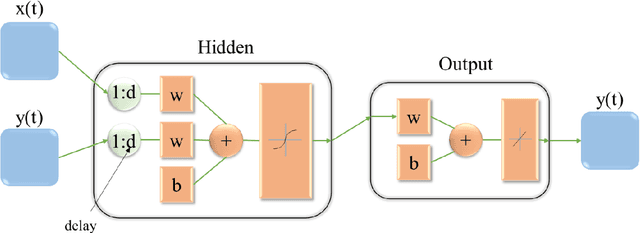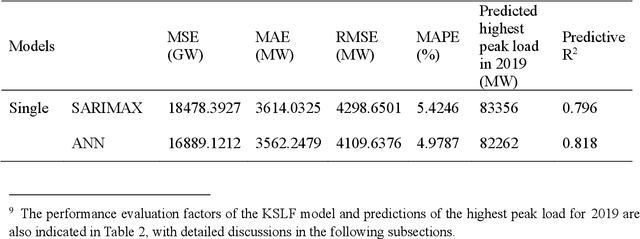Youngsang Cho
National-scale electricity peak load forecasting: Traditional, machine learning, or hybrid model?
Jun 30, 2021



Abstract:As the volatility of electricity demand increases owing to climate change and electrification, the importance of accurate peak load forecasting is increasing. Traditional peak load forecasting has been conducted through time series-based models; however, recently, new models based on machine or deep learning are being introduced. This study performs a comparative analysis to determine the most accurate peak load-forecasting model for Korea, by comparing the performance of time series, machine learning, and hybrid models. Seasonal autoregressive integrated moving average with exogenous variables (SARIMAX) is used for the time series model. Artificial neural network (ANN), support vector regression (SVR), and long short-term memory (LSTM) are used for the machine learning models. SARIMAX-ANN, SARIMAX-SVR, and SARIMAX-LSTM are used for the hybrid models. The results indicate that the hybrid models exhibit significant improvement over the SARIMAX model. The LSTM-based models outperformed the others; the single and hybrid LSTM models did not exhibit a significant performance difference. In the case of Korea's highest peak load in 2019, the predictive power of the LSTM model proved to be greater than that of the SARIMAX-LSTM model. The LSTM, SARIMAX-SVR, and SARIMAX-LSTM models outperformed the current time series-based forecasting model used in Korea. Thus, Korea's peak load-forecasting performance can be improved by including machine learning or hybrid models.
 Add to Chrome
Add to Chrome Add to Firefox
Add to Firefox Add to Edge
Add to Edge